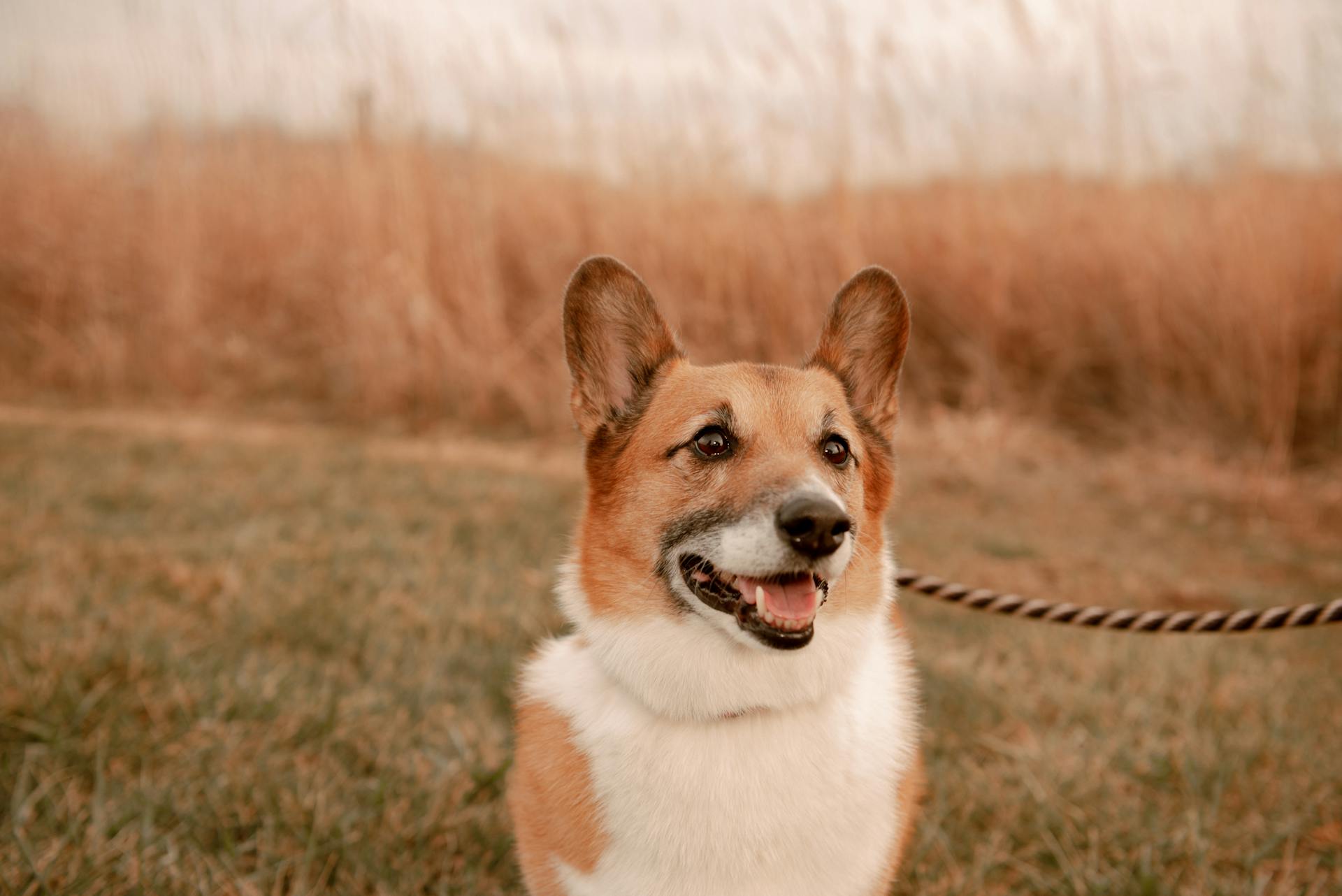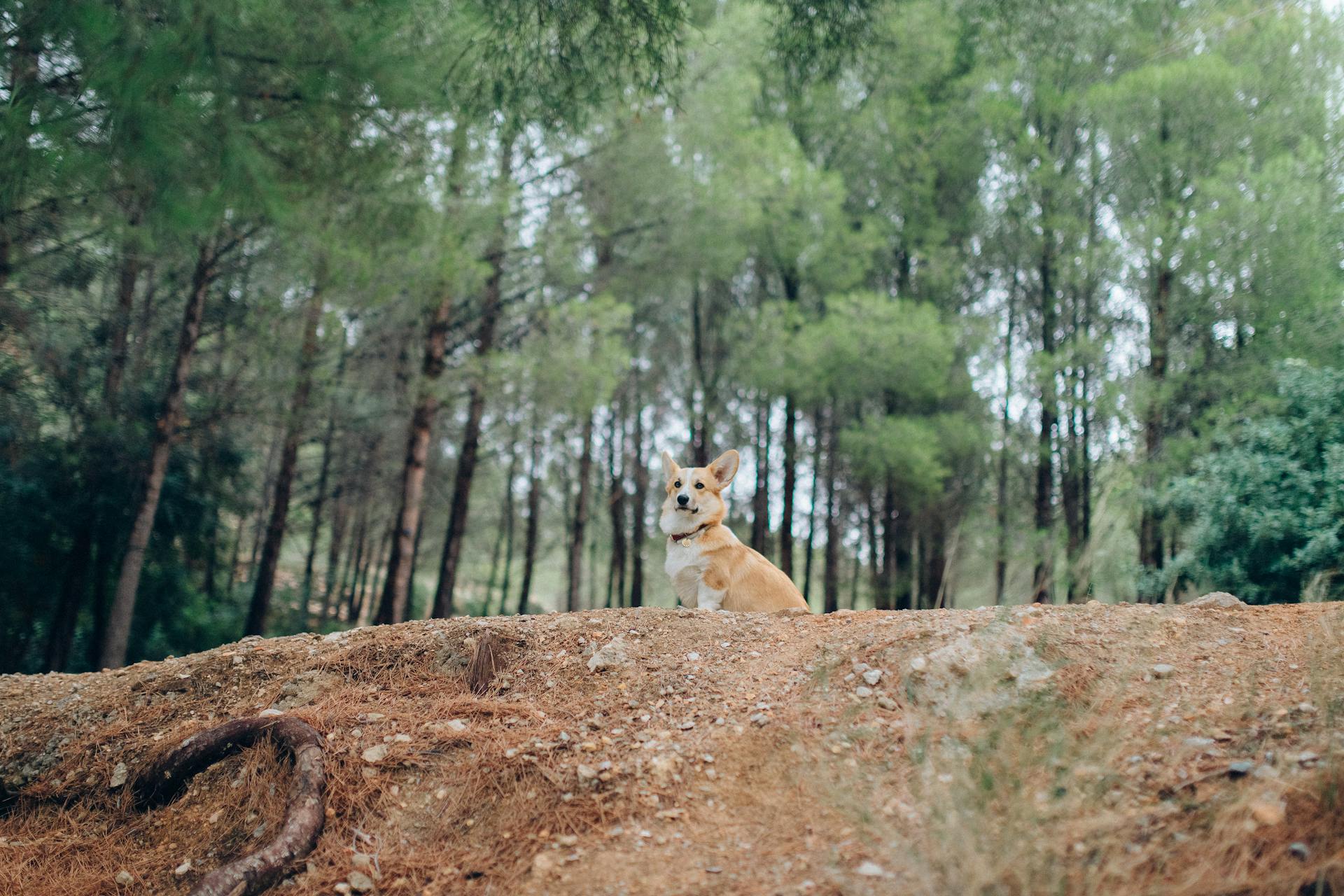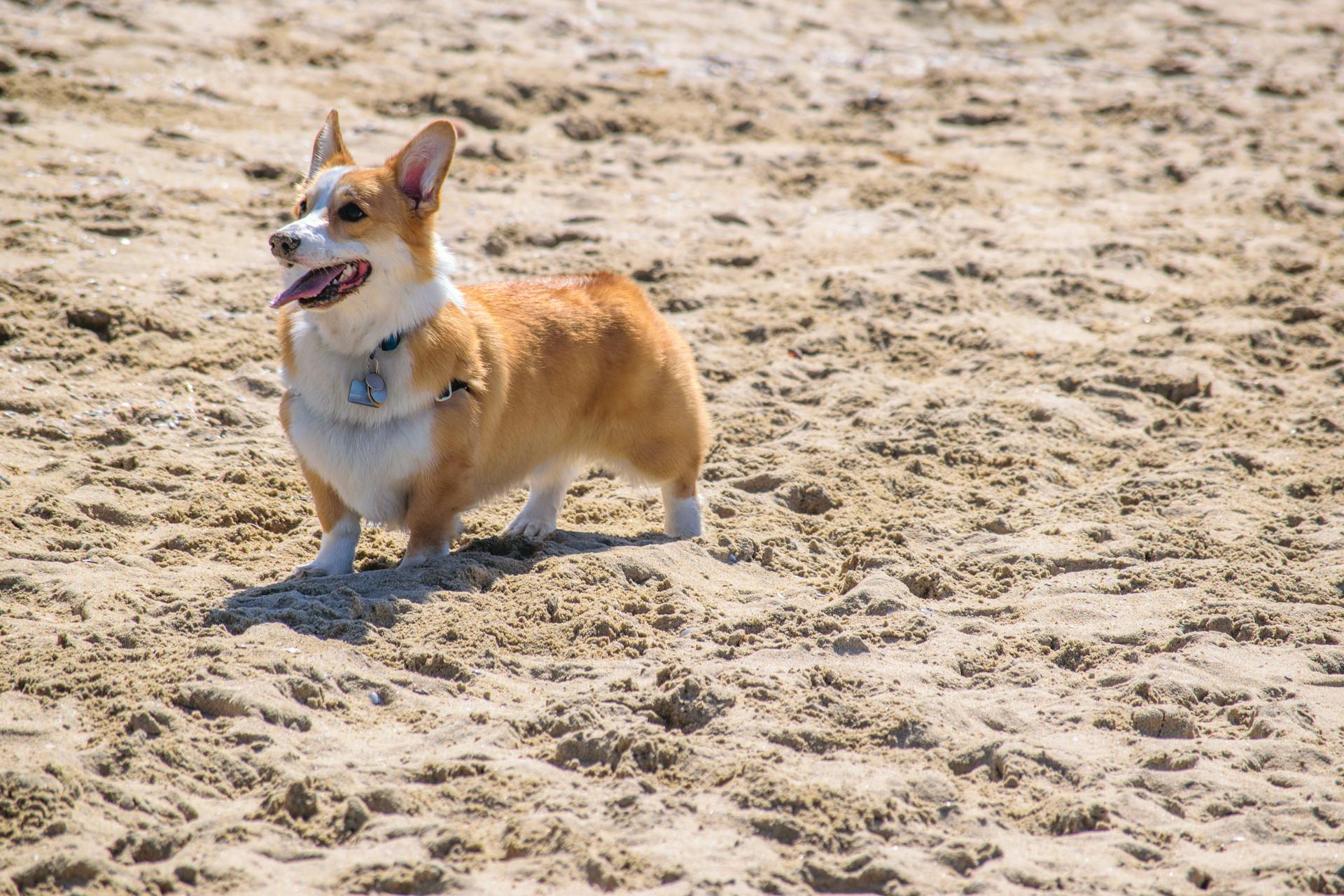
Welcoming a Pembroke Cardigan Corgi into your family is a big responsibility, but with the right knowledge, you'll be well-prepared to give them the best life possible.
First and foremost, Pembroke Cardigan Corgis are intelligent dogs that thrive on training and mental stimulation. They can learn quickly with positive reinforcement and consistency.
They do require regular exercise to stay happy and healthy, with a minimum of 30 minutes of physical activity per day. This can include walks, runs, or playtime in the backyard.
As with any breed, Pembroke Cardigan Corgis have specific dietary needs, and they should be fed a high-quality dog food that's rich in protein and low in fillers.
Physical Characteristics
The Cardigan Pembroke Corgi is a cross of two closely related breeds, and as such, its physical characteristics can vary. They typically have a body that is longer than it is tall with short legs.
Their coat is fairly smooth, dense, and double-coated for weather resistance, and can come in a variety of colors including red, fawn, sable, brindle, black, or blue with or without markings.
Depending on which parent breed has the dominant genes, your Cardigan Pembroke Corgi could be heavier and more stockily built or smaller and finer boned.
Breed Appearance
The Cardigan Pembroke Corgi's body shape is longer than it is tall with short legs, similar to its parent breeds.
Their coat is fairly smooth, dense, and double-layered for weather resistance, and comes in a variety of colors including red, fawn, sable, brindle, black, and blue.
The head and face are fox-like, while the ear set is more prominent if the Cardigan parent has dominant genes.
The eyes are round or oval, giving the facial expression of intelligent gentleness.
The tail can be low and wide like the Cardigan or shorter like the Pembroke, depending on the dominant genes.
The coat length varies on the body, and some Cardigans have a soft, fluffy coat that's not ideal for protecting them from the elements.
Regular brushing is necessary to keep flying hair under control, especially during shedding season.
Daily brushing and warm baths may be necessary during shedding season to remove excess coat.
Size
The Cardigan Welsh Corgi is a compact breed, standing between 10.5 to 12.5 inches tall. Males weigh between 30 to 38 pounds, while females typically weigh between 25 to 34 pounds.
Care and Maintenance
Your Cardigan Pembroke Corgi will shed constantly and seasonally, requiring regular brushing to manage the process. Brushing at least once a week is essential, with more frequent brushing needed during shedding periods.
This will be particularly important for households with members who suffer from asthma or other breathing problems, as the extra hair can exacerbate these conditions.
Regular dental evaluations and teeth cleaning are also crucial to prevent periodontal disease and resulting tooth loss.
Breed Maintenance
Your Cardigan Pembroke Corgi hybrid is a constant and seasonal shedder, so be prepared for regular brushing sessions.
Brushing your hybrid at least once a week is a must, and more often during shedding periods to keep their coat under control. This will also help reduce allergens in the air, making it a good idea for households with asthma sufferers.
Frequent shampooing can strip their coat of essential oils, making it more prone to dryness, so bathe them only when necessary.
Regular dental evaluations and teeth cleaning are crucial to prevent periodontal disease and tooth loss.
Feeding
Feeding your Cardigan Welsh Corgi is crucial for maintaining their overall health and well-being. To determine the right amount of food, consider your dog's size, age, build, metabolism, and activity level.
A highly active dog will need more food than a couch potato dog. Cardigans like to eat, and will over-indulge if given the chance, so it's essential to measure their food and feed them twice a day.
The quality of dog food also makes a difference - the better the food, the less you'll need to feed your dog. You should be able to see a waist when looking down at your Cardigan, and feel but not see their ribs when placing your hands on their back.
If you can't feel their ribs without pressing hard, they need less food and more exercise. To ensure you're feeding your Cardigan correctly, give them the eye test and the hands-on test regularly.
Temperament and Personality
The Pembroke Cardigan Corgi is a unique breed that inherits the best qualities from its parent breeds.
Your Pembroke Cardigan Corgi will be wary but polite to strangers, but will bond closely with its owners and human family members. He will get along generally pretty well with kids, cats, and other animals if he knows they belong there.
He is quite intelligent, which makes him easily trainable unless he inherits the independence contributed by the Pembroke parent. This intelligence also means he'll need to be kept mentally challenged to avoid boredom.
Establishing who's in charge is vital as early as possible in the relationship with this hybrid, just like with the parent breeds.
The Pembroke parent contributes higher energy levels to the mix, but this should be easily dealt with in the daily walks and other exercise challenges that your pet will love.
Discover more: Black and Tan Breeds of Dogs
Trainability
The Pembroke Cardigan Corgi is a relatively easy breed to train, especially with positive reinforcement techniques. They thrive on praise and rewards, making them highly motivated to learn.
Their intelligence is one of their strongest suits, with a high trainability score. This means they can quickly pick up on commands and behaviors with consistent practice.
However, they can be stubborn at times, so patience and consistency are key. A clear and concise training plan will help you stay on track and avoid frustration.
Pembroke Cardigan Corgis are known to be highly food-motivated, which makes training sessions a breeze. Use their love of treats to your advantage and reward good behavior.
With regular exercise and mental stimulation, your Pembroke Cardigan Corgi will be well-equipped to handle training sessions. They'll be engaged, focused, and eager to please.
A fresh viewpoint: Training Corgis
Owner Experiences
As an owner of a Pembroke Welsh Corgi, you'll quickly discover that these dogs are intelligent and active companions. They require regular exercise and mental stimulation to prevent boredom and destructive behavior.
Their short stature can make them prone to obesity, so it's essential to monitor their food intake and ensure they get plenty of physical activity. This includes daily walks and playtime.
Pembroke Welsh Corgis are known for their loyalty and affection towards their families. They thrive on attention and interaction, making them excellent companions for active families.
Their short coats require minimal grooming, but they do shed heavily during shedding season. Regular brushing can help reduce shedding and prevent hair from getting everywhere.
These dogs are naturally protective of their families, but they can be wary of strangers. Socialization is key to helping them become confident and calm in new situations.
Health and Requirements
The Pembroke Cardigan Corgi is a relatively healthy breed, but like all breeds, they're prone to certain health conditions. They can be prone to Intervertebral Disk Disease, which can cause unsteadiness, difficulty going up or down stairs, and paralysis.
Exercise is crucial for this breed, as they need both physical and mental challenges to prevent boredom and unacceptable behaviors. A daily routine that includes long walks, agility and obedience practices, and ball retrieval games can help keep them happy and healthy.
Recommended read: Pembroke Welsh Corgi Breed Standard
To ensure the health and well-being of your Pembroke Cardigan Corgi, it's essential to have health clearances from the Orthopedic Foundation for Animals (OFA) for hip dysplasia and certification from the Canine Eye Registry Foundation (CERF) that eyes are normal. You can confirm these clearances by checking the OFA and CERF websites.
Their tendency to wander and hunt means they should not be outside without being leashed, but with proper exercise and care, they can thrive in apartments, condos, and family homes with or without fences.
A different take: Cardigan Welsh Corgi Health Issues
Health
Cardigan Welsh Corgis are generally healthy dogs, but like all breeds, they're prone to certain health conditions. You should expect to see health clearances from the Orthopedic Foundation for Animals (OFA) for hip dysplasia with a score of fair or better, and certification from the Canine Eye Registry Foundation (CERF) that eyes are normal.
To confirm health clearances, you can check the OFA web site (offa.org) and the CERF web site (vmdb.org/cerf.html). Intervertebral Disk Disease is a common issue in Cardigans due to their long backs, which can lead to ruptures in a spinal disc. Signs of this disease include unsteadiness, difficulty going up or down stairs, and knuckling over of limbs.
For more insights, see: Do Corgis Have Health Issues

Progressive Retinal Atrophy (PRA) is a family of eye diseases that involves the gradual deterioration of the retina. This can lead to night-blindness, and eventually, loss of sight during the day. Many affected dogs adapt well to their limited or lost vision, as long as their surroundings remain the same.
If you're considering a Cardigan Welsh Corgi, it's essential to be aware of these potential health issues. By understanding these risks, you can take steps to ensure your dog lives a happy and healthy life.
Activity Requirements
Your Cardigan Pembroke Corgi will require daily exercise to stay happy and healthy.
Daily walks, agility practices, and obedience training are a great way to keep him active.
He'll also love playing ball retrieval games, frisbee, and fetch.
Mental challenges are just as important as physical ones to prevent boredom and unwanted behaviors.
He's a social breed that thrives on being with his human family, and he's happy to assist with any task he's given.

He can adapt to living in apartments, condos, or family homes with or without fences, as long as he's getting enough exercise.
However, he should never be left outside without a leash, as he has a strong instinct to wander and hunt.
This breed can live in rural or urban settings and can tolerate most climates.
Prospective Owners
If you're considering bringing a Pembroke Cardigan Corgi into your family, choosing the right breed is crucial.
The Pembroke Cardigan Corgi is a wonderful companion, and getting one can bring immense joy and love into your life.
To ensure you find a healthy and well-socialized pup, it's essential to find a responsible breeder.
You can start by researching reputable breeders and asking for referrals from friends or family members who have experience with the breed.
Getting started in dog sports can be a great way to bond with your Pembroke Cardigan Corgi and provide them with physical and mental stimulation.
However, if you're new to dog ownership, it's best to start with the basics and focus on housebreaking and obedience training.
Here are some key things to consider when choosing your breed:
- Choose Your Breed
- Why Get a Dog?
- Getting Started in Dog Sports
- All About Puppies
Quick Facts
The Pembroke Cardigan Corgi is a beloved breed with a rich history. Originating in Wales, this dog is part of the Herding breed group.
They come in a variety of colors and combinations, with a medium-length, double coat that requires regular grooming. Weight-wise, Pembroke Cardigan Corgis typically range from 25-38 pounds.
Their lifespan is relatively long, spanning around 12-15 years. With proper care, they can live a happy and healthy life.
These dogs are intelligent, loyal, and affectionate, making them great companions for many families. However, they do require early and consistent training to reach their full potential.
Here's a quick rundown of their exercise and training needs:
- Exercise needs: Moderate
- Training needs: Early and consistent training is recommended
Unfortunately, like many breeds, Pembroke Cardigan Corgis can be prone to certain health issues, including hip dysplasia, elbow dysplasia, and eye problems. Regular veterinary check-ups can help catch these issues early on.
Frequently Asked Questions
What's the difference between corgi Pembroke and Cardigan?
Difference between Pembroke and Cardigan Corgis: Pembroke Corgis are generally smaller and have a docked tail, while Cardigan Corgis are larger with a longer, fox-like tail
Are Cardigan Corgis expensive?
Cardigan Corgis can cost between $500 and $3,000 when buying from a breeder, but adopting from a shelter or rescue is a more affordable option.
Do Cardigan Corgis shed a lot?
Cardigan Corgis shed heavily, with a thick undercoat that sheds twice a year. Regular brushing can help manage stray hair.
Featured Images: pexels.com


